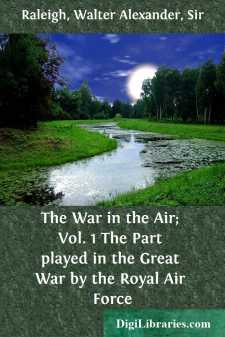History
- Africa 30
- Americas (North Central South West Indies) 50
- Ancient 68
- Asia 58
- Australia & New Zealand 8
- Canada 41
- Caribbean & West Indies 1
- Civilization 20
- Eastern Europe 12
- Europe 310
- Expeditions & Discoveries 60
- General 77
- Historical Geography 1
- Jewish 9
- Latin America 3
- Medieval 8
- Middle East 13
- Military
- Revolutionary 8
- Study & Teaching 5
- United States 353
- Western Europe 56
- World 13
Military Books
Sort by:
by:
John Galsworthy
THE HERO In the year —— there dwelt on Hampstead Heath a small thin gentleman of fifty-eight, gentle disposition, and independent means, whose wits had become somewhat addled from reading the writings and speeches of public men. The castle which, like every Englishman, he inhabited was embedded in lilac bushes and laburnums, and was attached to another castle, embedded, in deference to our national...
more...
by:
W. W. Howe
Major General J. G. Foster commenced a movement of his army from New Berne this morning. At 3 p. m. we came upon the enemy's pickets (near our present camping ground), when three prisoners were taken by the advance guard of the Third New York Cavalry. In attempting to press forward we found the road densely blockaded by felled trees; this blockade extended for several hundred yards, being situated...
more...
The 2nd Battalion Royal Dublin Fusiliers is one of the oldest regiments in the service. It was raised in February and March, 1661, to form the garrison of Bombay, which had been ceded to the Crown as part of the dowry of the Infanta of Portugal, on her marriage with King Charles II. It then consisted of four companies, the establishment of each being one captain, one lieutenant, one ensign, two...
more...
by:
Julius Caesar
BOOK I I.—All Gaul is divided into three parts, one of which the Belgae inhabit, the Aquitani another, those who in their own language are called Celts, in ours Gauls, the third. All these differ from each other in language, customs and laws. The river Garonne separates the Gauls from the Aquitani; the Marne and the Seine separate them from the Belgae. Of all these, the Belgae are the bravest,...
more...
by:
Frank Norris
THE SURRENDER OFSANTIAGO or two days we had been at the headquarters of the Second Brigade (General McKibben's), so blissfully contented because at last we had a real wooden and tiled roof over our heads that even the tarantulas—Archibald shook two of them from his blanket in one night—had no terrors for us. The headquarters were in an abandoned country seat, a little six-roomed villa, all on...
more...
INTRODUCTION When Great Britain declared war upon Germany in August 1914, she staked her very existence as a free nation upon an incalculable adventure. Two new means and modes of warfare, both of recent invention, enormously increased the difficulties of forecast and seemed to make precedents useless. Former wars had been waged on the land and on the sea; the development of submarines and aircraft...
more...
Page 15 CHAPTER I THE BEGINNINGS OF NAVIES Civilization and sea power arose from the Mediterranean, and the progress of recent archeological research has shown that civilizations and empires had been reared in the Mediterranean on sea power long before the dawn of history. Since the records of Egypt are far better preserved than those of any other nation of antiquity, and the discovery of the Rosetta...
more...
CHAPTER I. THE NEUTRALITY OF THE UNITED STATES. The neutral attitude assumed by the United States was maintained throughout the war. With reference to any official recognition of the Transvaal as an independent State apart from the immediate purposes of war no action was taken. This view of the situation in South Africa was entirely consistent with the requirements of international law, and, in...
more...
by:
Thorstein Veblen
CHAPTER I Introductory: On the State and its Relation to War and Peace To many thoughtful men ripe in worldly wisdom it is known of a verity that war belongs indefeasibly in the Order of Nature. Contention, with manslaughter, is indispensable in human intercourse, at the same time that it conduces to the increase and diffusion of the manly virtues. So likewise, the unspoiled youth of the race, in the...
more...
CHAPTER I THE WORLD'S GREATEST CONTEST The Censorship—The Warship "Audacious"—Mine or Torpedo?—The BattleLine—War by Gasolene Motors—The Boys from Canada—The Audacity of it. The war of 1914 is not only the greatest war in history but the greatest in the political and economic sciences. Indeed, it is the greatest war of all the sciences, for it involves all the known sciences of...
more...











